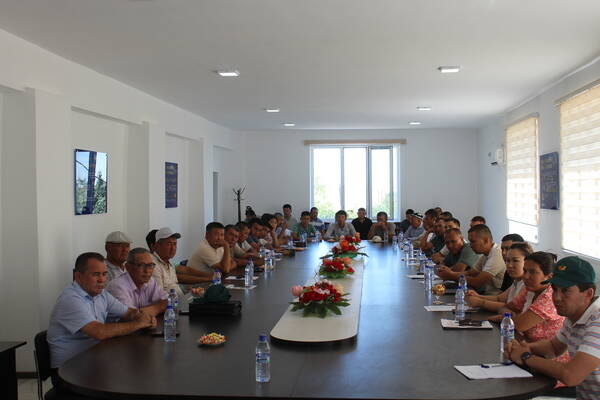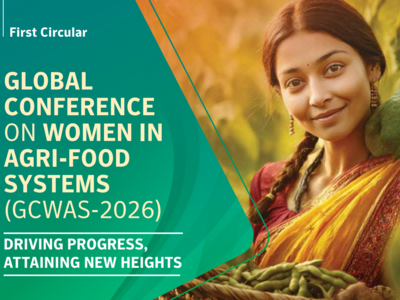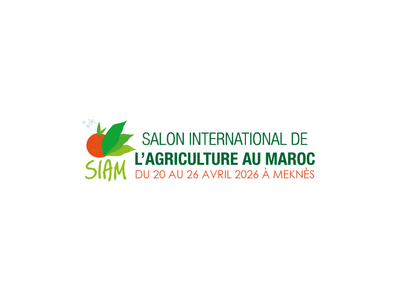Crop Diversification Field Day for Farmers in the Aral Sea Region in Uzbekistan
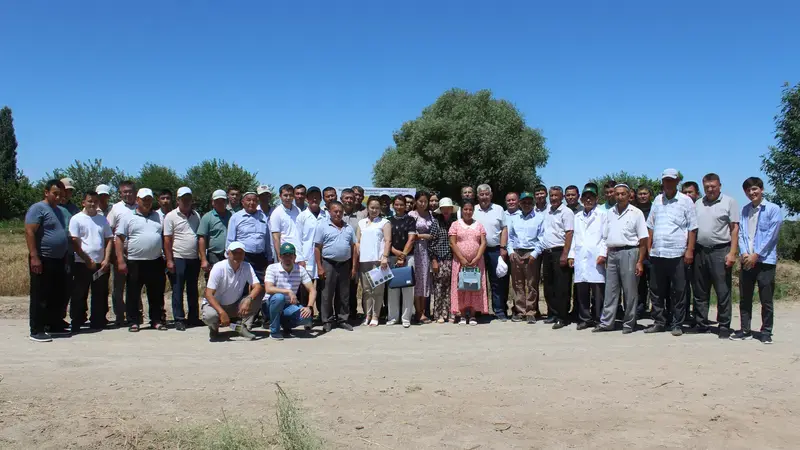
The fragile ecosystem of the Aral Sea Region of Uzbekistan faces significant agricultural challenges due to soil salinity, drought, heat, and frost. Government policies have tried to address these abiotic stresses threatening food security and fodder crop production, but more effective interventions are needed. Therefore, ICARDA and the Karakalpakstan Research Institute of Crop Husbandry (KRICH), with generous support from the Food and Agriculture Organization of the UN, initiated crop diversification activities in spring 2024 aimed at improving soil health, water usage, and the incomes and diets of farming communities.
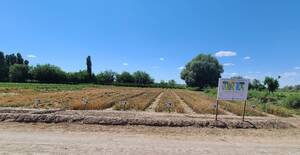
To test various climate-resilient crops (including varieties of early maturing spring wheat, chickpea, lentil, mungbean, grass pea and safflower), a demonstration field was established in Chimbay, Karakalpakstan. The initiative is part of the Food Systems, Land Use, and Restoration Impact Program which is funded by the Global Environment Facility and implemented by FAO in Uzbekistan.
On July 6, 2024, ICARDA and KRICH held a Field Day in Chimbay district to showcase the benefits of crop diversification. They demonstrated how climate-smart crops, resilient to climate change, can improve yields and incomes, and allow for the cultivation of multiple crops within the same field. A group of nearly 70 farmers, students and representatives of partner organization observed the advanced growth stages of various crops planted in early April. None of the farmers had ever grown chickpea, lentil or safflower before and only very few had experience in growing mungbean.
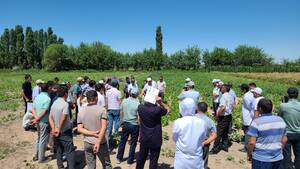
Chickpea and lentil crops had fully matured, while spring wheat, planted late, showed below-normal growth. Safflower displayed varied maturity, and mungbean had to be replanted after heavy rain destroyed the initial crop. Farmers were impressed by the diversity of spring crop options and engaged actively, asking questions about cultivation, use, and marketing.
ICARDA and KRICH scientists highlighted the importance of planting spring wheat before March 15 in this specific region. They recommended alternative climate-resilient crops like chickpea, mungbean, lentil, and safflower for later planting. These crops tolerate drought and heat, thrive on various soils, and legumes improve soil health with minimal irrigation.
Moreover, farmers showed keen interest in growing chickpea and lentil in 2025 and were especially enthusiastic about mungbean, contingent on the availability of improved seeds. Safflower requires further evaluation in larger plots to determine its commercial viability.
